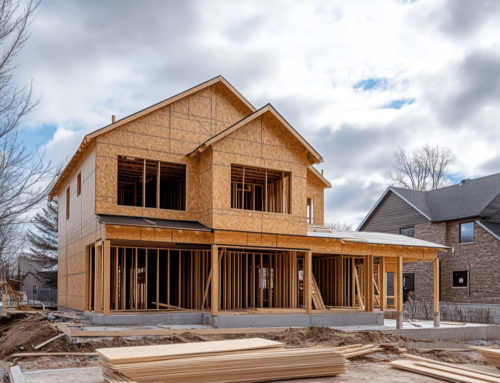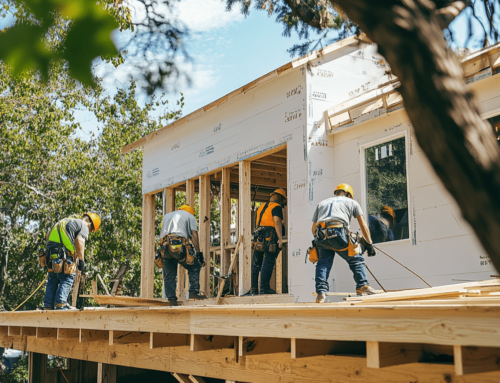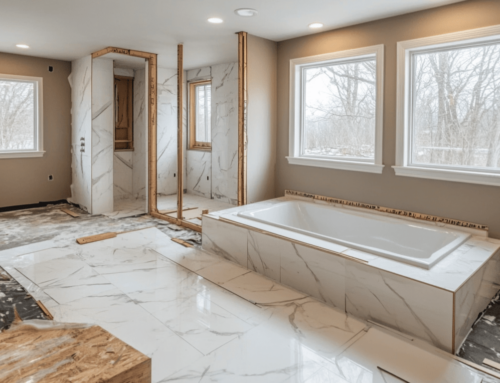Disclaimer: This information is meant for educational purposes only and is not intended to be used as or a substitute for professional financial advice.
Building an accessory dwelling unit (ADU) and renting it out is now an established way for homeowners to make some passive income. As housing prices continue to climb in North Carolina and elsewhere around the country, buying a second property to rent has become more expensive and rental incomes have increased – making ADUs on an existing property an attractive option. But how much money can you make off an ADU rental?
In this article, you’ll find out what, exactly, an ADU rental is, how to calculate the revenue you can make from one, and the costs you’ll need to consider. You’ll also learn how to decide which rental model is right for you and your property.
What Is an ADU Rental?
An ADU rental is an accessory dwelling on your property that you rent to others on a short or long-term basis. While there are many things you can do with an ADU such as provide a living space for a friend or relative or create an office for yourself, renting it out is one of the most productive uses. Depending on your circumstances, you could make a substantial side income off of renting an accessory unit on your property.
ADU Rental Income: How To Estimate
Like any other business or investment, the income you make from renting an ADU to others is the revenue you bring in minus your expenses. While that is simple in principle, there is more to consider than many people realize at first. Estimating your ADU rental income requires understanding how the rental market works and all of the costs that come with building, managing, and maintaining your unit.
That information is all worth learning if you want to use your ADU as a rental property. However, as part of our planning process, we can calculate your potential income for you. Click the button below to reach out and find out what you could make from an ADU rental.
ADU Rental Revenue Factors
The first thing to consider is the potential revenue you can make from an ADU rental. Thanks to developments in technology, this has become much easier than it was in the past. Generally speaking, there are two main factors to consider when estimating how much money a rental property can bring in.
ADU Rental Price
You’ll first want to establish how much you can rent your ADU for. There are a few ways to do this, including:
- Looking at similar properties in your area: You can get a good idea of what your ADU might fetch in rent by looking at “comps” – or, similar properties – near you. Ideally, you can find other ADU rentals in your ZIP code or in one nearby. If you can’t, the next best thing is to look at rental units that are similar in size and amenities, while understanding that an ADU may rent for slightly less than homes that have their own property.
- Use a rent estimator tool: You can find tools online that can help estimate the rental value of your property. These usually ask you to input details about your property such as the number of bedrooms and bathrooms, square footage, and more. While these tools can provide a reasonable estimate, they usually can’t take everything into account, meaning you’ll want to compare your results to other estimates.
- Ask a property manager: If you decide to use a property manager to rent your ADU for you, they can also estimate how much you can rent it for. Again, it’s always good to check the estimate they give you against other estimates you find.
ADU Rental Occupancy Rate
The other main factor to consider is how likely your ADU is to get rented at all and how much time it is likely to sit empty. While this isn’t something you can know for certain, estimating it has gotten much easier.
One tried and true method is to look up vacancy data from government sources such as the U.S. census. However, these days, there are several services that can provide occupancy rate data down to the ZIP code, along with other helpful information.
Knowing the occupancy rate for your area is important because, like any investment, an ADU rental comes with risks. One of the biggest risks is not being able to rent your property. Understanding how difficult it will be to rent your ADU in your area can help you decide if there’s an opportunity at all and how much you’ll need to budget to cover vacancies.

ADU Rental Cost Factors
Once you’ve gotten a general estimate of how much you can rent your ADU for and how likely it is you can rent it, the next step is to consider the costs of building and managing a rental property. Some of these costs are regular, while others are harder to predict. Reputable ADU contractors will include many, if not all, of the costs involved in building your unit, and not just the construction cost.
If you’re curious about how much it might cost to build the secondary dwelling you have in mind, our free ADU build cost calculator tool allows you to choose from different options for floor plans, building materials, and more to get an approximate price range. This can give you a general idea of your build cost before getting an official estimate.
ADU Finance Payments
Unless you’ve paid for your ADU in cash, one of your biggest expenses is likely to be the finance payments on your unit. Some of the most popular financing options for ADU builds are HELOC loans, home equity loans, and renovation loans.
But whatever type of loan you have, your regular monthly loan payments are likely to be several hundred dollars per month at the very least and may go up to several thousand. Be sure to factor in additional fees on top of your base payments to get an accurate picture.
ADU Rental Income Taxes
Another major expense to consider is the tax you’ll have to pay on your rental income. When it comes to taxes, ADU rental income is treated exactly the same as rental income from any other kind of property.
Tax rates vary depending on which county your ADU is located in. In North Carolina, rental income tax rates range from 6.75% to 7.5%. You can find the full list of each county’s tax rate on the North Carolina Department of Revenue website.
ADU Rental Maintenance Costs
When you rent a property to others, you’ll also be responsible for its upkeep. Throughout North Carolina, much of the maintenance responsibility for a rental property falls on the landlord. While your finance payments and taxes are relatively regular expenses, maintenance costs are harder to estimate.
Maintenance items can be as inexpensive and simple as replacement air filters and smoke alarm batteries. But you’ll also have to fix things like electrical and plumbing issues when they arise, which can come at a considerable expense. Research maintenance costs in your area and overestimate what you might spend on upkeep to play it safe.
ADU Rental Management Expenses
Renting a property involves a lot more time and effort than you might think. You have to be responsive to your tenant, collect rent, and deal with maintenance requests, among other tasks.
Rather than deal with this yourself, you can hire a property management company to take care of these tasks for you. While this does come at an additional cost, it may be less than you’d think. Most property management companies charge between 8% and 12% of the monthly rental fee. When you consider the amount of time you’d otherwise spend tending to your ADU rental, this fee is worth the money for most people.
ADU Rental Income: Long-Term vs. Short-Term Rental Unit
Another impactful consideration is how you want to rent your ADU. One option is to lease it as a long-term rental for periods of months or even years. The other option is to list it as a short-term rental on sites like AirBNB and VRBO.
Which option is right for you will depend on where your ADU is located, how it is configured, and your personal preferences. In the section below, we’ve outlined the pros and cons of each rental model.
Pros and Cons of Using Your ADU as a Long-Term Rental
| Long-Term Rental Pros | Long-Term Rental Cons |
|---|---|
| More consistent income | Lower income potential |
| Less day-to-day administrative work | Requires more paperwork |
| Less activity and fewer people on your property | More legal responsibilities to tenants |
Pros and Cons of Using Your ADU as a Short-Term Rental
| Short-Term Rental Pros | Short-Term Rental Cons |
|---|---|
| Higher income potential | Requires more attention and management |
| Fewer regulations to deal with | Income can be seasonal and unpredictable |
| Property can be used for other purposes when you want to | More regular upkeep, cleaning, and maintenance |
How Much Can You Make From an ADU Rental? Conclusion
An ADU can be a reliable source of income for many people, especially in parts of North Carolina where property is increasingly expensive and hard to come by. Depending on where you live, the specifics of your property, and your rental model, you can earn up to several thousand dollars a month from an ADU rental.
However, there is a lot to consider when estimating rental income from an additional dwelling. If you have a hard time renting your unit or fail to consider all of the expenses that come with managing a rental property, you could also lose money.
You could take the time to calculate all of the revenue potential and expenses yourself to figure out how much you can make. But with just a few minutes of your time, our experts can do all of that for you and deliver a detailed assessment to you, free of charge. Click the button below to get started.






Leave A Comment